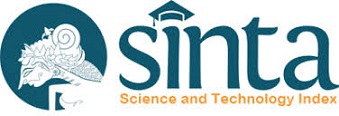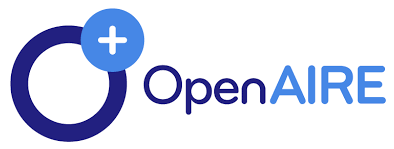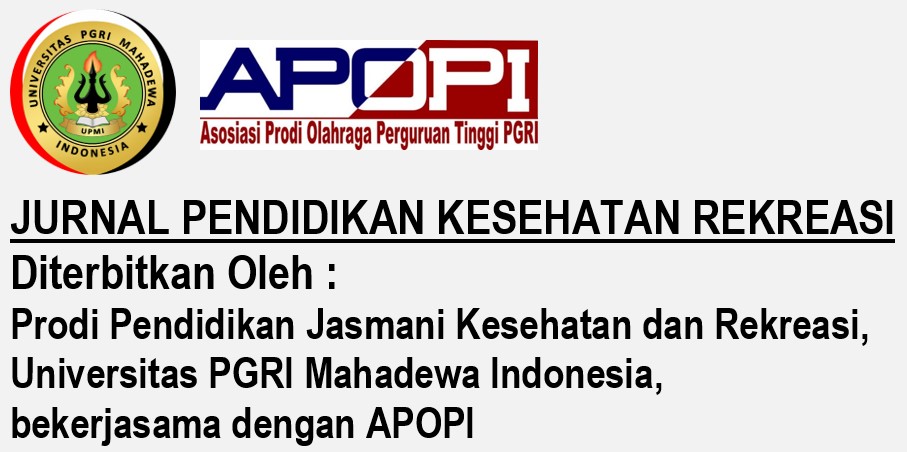Role Awareness Training in Student Athletes : Does Awareness of Roles Improve Self Regulation?
DOI:
https://doi.org/10.59672/jpkr.v10i2.3742Keywords:
role awareness training, self regulationAbstract
Self-regulation can help student-athletes in achieving goals related to their role as athletes or students. Previous research has shown that role awareness training can improve psychological well-being, but the effect of this intervention on self-regulation has yet to be discovered. This research aims to determine the effect of role awareness training on student-athletes in the SLOMPN Unesa dormitory. The method used is quantitative experimental with a pretest-posttest control group design. The experiment lasted in 4 meetings and was conducted on 12 student-athletes aged 13-16 who were obtained through saturated sampling. Data was obtained through the pretest and posttest of the self-regulation instrument, which was then calculated using the independent t-test method. The results of this study indicate that role awareness training influences student athletes' self-regulation, with a t value of 2,493 and p<0,05. Student-athletes in this study also had equally high autonomous and controlled regulation tendencies.
Downloads
References
Brown, C. W., & Ryan, R. M. (2015). A self-determination theory perspective on fostering healthy self-regulation from within and without. In J. Stephen (Eds.), Positive psychology in practice: Promoting human flourishing in work, health, education, and everyday life (pp. 139–157). John Wiley & Sons. https://doi.org/10.1002/9781118996874.ch9
Cleary, T. J., & Zimmerman, B. J. (2001). Selfregulation differences during athletic practice by experts, non-experts, and novices. Journal of Applied Sport Psychology, 13, 185–206. https://psycnet.apa.org/doi/10.1080/104132001753149883
Dimoff, J. K., Kelloway, E. K., & Burnstein, M. D. (2016). Mental health awareness training (MHAT): The development and evaluation of an intervention for workplace leaders. International Journal of Stress Management, 23(2), 167–189. https://doi.org/10.1037/a0039479
Dundas, I., Binder, P. E., Hansen, T. G. B., & Stige, S. H. (2017). Does a short self-compassion intervention for students increase healthy self-regulation? A randomized control trial. Scandinavian Journal of Psychology, 58(5), 443–450. https://doi.org/10.1111/sjop.12385
Gomez, J., Bradley, J., & Conway, P. (2018). The challenges of a high-performance student athlete. Irish Educational Studies, 37(3), 329–349. https://doi.org/10.1080/03323315.2018.1484299
Graafland, M., Schraagen. J. M.C., Boermeester, M. A., Bemelman. W. A., Schijven, M. P. (2015). Training situational awareness to reduce surgical errors in the operating room, British Journal of Surgery, 102(1), 16–23, https://doi.org/10.1002/bjs.9643
Guay, F. (2022). Applying Self-Determination Theory to Education: Regulations Types, Psychological Needs, and Autonomy Supporting Behaviors. Canadian Journal of School Psychology, 37(1), 75–92. https://doi.org/10.1177/08295735211055355
Hatami, F., Ghahremani, L., Kaveh, M. H., & Keshavarzi, S. (2016). The effect of self-awareness training and painting on self-efficacy of adolescents. Journal of Practice in Clinical Psychology, 4(2), 89-96.
Morin, A. (2011). Self‐awareness part 1: Definition, measures, effects, functions, and antecedents. Social and Personality Psychology Compass, 5(10), 807–823. https://doi.org/10.1111/j.1751-9004.2011.00387.xhttp://dx.doi.org/10.15412/J.JPCP.06040203
Jannah, M. (2016). Psikologi eksperimen: Sebuah pengantar. Unesa University Press
Jannah, M., Khoirunnisa, R. N., Jaro, S., & Widohardhono, R. (2024). Increasing psychological well-being through role awareness training among student-athletes in national potential young athlete training center. IJORER: International Journal of Recent Educational Research, 5(1), 219–228. https://doi.org/10.46245/ijorer.v5i1.548
Kimball, A. C. (2007). “You signed the line”: Collegiate student-athletes’ perceptions of autonomy. Psychology of Sport and Exercise, 8(5), 818–835. https://doi.org/10.1016/j.psychsport.2007.03.005
Legault, L., Green-Demers, I., Grant, P., & Chung, J. (2007). On the self-regulation of implicit and explicit prejudice: A self -determination theory perspective. Personality and Social Psychology Bulletin, 33(5), 732–749. https://doi.org/10.1177/0146167206298564
Mikulas, W. L. (1986). Self-control: Essence and development. Psychological Record, 36, 297–308. https://doi.org/10.1007/BF03394949
Morin, A. (2011). Self‐awareness part 1: Definition, measures, effects, functions, and antecedents. Social and Personality Psychology Compass, 5(10), 807–823. https://doi.org/10.1111/j.1751-9004.2011.00387.x
Oktafiani, W. A., & Jannah, M. (2022). Improving emotional regulation through role awareness training among youth athletes. Jurnal Psikologi Teori Dan Terapan, 2023(2), 252–261. https://doi.org/10.26740/jptt.v14n2.p252-261
Orange, C. (1999). Using peer modeling to teach self-regulation. Journal of Experimental Education, 68(1), 21–39. https://doi.org/10.1080/00220979909598492
Panadero, E., & Alanso-Tapia, J. (2014). How do students self-regulate?: review of Zimmerman’s cyclical model of self-regulated learning. Anales de Psicología, 30(2), 450–462. http://dx.doi.org/10.6018/analesps.30.2.167221
Parahita, Q. D., & Jannah, M. (2023). Penerapan awareness Training untuk meningkatkan self-Confidence atlet muda. Character: Jurnal Penelitian Psikologi, 10(1), 38–50. https://ejournal.unesa.ac.id/index.php/character/article/view/53343
Patrick, T. D., & Hrycaiko, D. W. (1998). Effects of a mental training package on an endurance performance. The Sport Psychologist, 12(3), 283–299. https://doi.org/10.1123/tsp.12.3.283
Proctor, S., & Boan-Lenzo, C. (2010). Prevalence of depressive symptoms in male intercollegiate student athletes and nonathletes. Journal of Clinical Sport Psychology, 4(3), 204–220. https://doi.org/10.1123/jcsp.4.3.204
Rigby, C. S., Schultz, P. P., & Ryan, R. M. (2014). Mindfulness, interest-taking, and self-regulation: A self-determination theory perspective on the role of awareness in optimal functioning. In A. le, C. T. Ngnoumen, & E. J. Langer (Eds.), The Wiley Blackwell handbook of mindfulness (pp. 216–235). Wiley Blackwell. https://doi.org/10.1002/9781118294895.ch12
Ross, J., Anderson, J. R., & Campbell, R. N. (2011). Situational changes in self-awareness influence 3- and 4-year-olds’ self-regulation. Journal of Experimental Child Psychology, 108(1), 126–138. https://doi.org/10.1016/j.jecp.2010.08.003
Ryan, R. M., & Deci, E. L. (2000). Intrinsic and extrinsic motivations: Classic definitions and new directions. Contemporary Educational Psychology, 25(1), 54–67. https://doi.org/10.1006/ceps.1999.1020
Ryan, R. M., & Deci, E. L. (2006). Self-regulation and the problem of human autonomy: Does psychology need choice, self-determination, and will? Journal of Personality, 74(6), 1557–1586. https://doi.org/10.1111/j.1467-6494.2006.00420.x
Shambrook, C. J., & Bull, S. J. (1996). The use of a single-case research design to investigate the efficacy of imagery training. Journal of Applied Sport Psychology, 8(1), 27– 43. https://psycnet.apa.org/doi/10.1080/10413209608406306
Slimani, M., Bragazzi, N. L., Tod, D., Dellal, A., Hue, O., Cheour, F., Taylor, L., & Chamari, K. (2016). Do cognitive training strategies improve motor and positive psychological skills development in soccer players? Insights from a systematic review. In Journal of Sports Sciences (Vol. 34, Issue 24, pp. 2338–2349). Routledge. https://doi.org/10.1080/02640414.2016.1254809
Tremayne, P., & Tremayne, B. (2004). Children and sport psychology. In T. Morris & J. Summers (Eds.), Sport psychology: Theory, applications and issues (2nd ed., pp. 529–546). John Wiley & Sons Australia
Verhaeghen, P., & Mirabito, G. (2021). When you are talking to yourself, is anybody listening? The relationship between inner speech, self-awareness, wellbeing, and multiple aspects of self-regulation. International Journal of Personality Psychology, 7, 8–24. https://doi.org/10.21827/ijpp.7.37354
Weinberg, R.S., & Gould, D. (2007). Foundations of sport and exercise psychology (4th ed). Human Kinetics
Wisudawati, W. N., Sahrani, R., & Hastuti, R. (2018). Efektivitas pelatihan ketangguhan (hardiness) untuk meningkatkan motivasi berprestasi akademik siswa atlet (studi pada sekolah x di Tangerang). Provitae: Jurnal Pendidikan, 10(2), 1–20. https://doi.org/10.24912/provitae.v10i2.1285
Zimmerman, B. J. (1989). A social cognitive view of self-regulated academic learning. Journal of Educational Psychology, 81(3), 329–339. https://doi.org/10.1037/0022-0663.81.3.329
Downloads
Published
How to Cite
Issue
Section
License
Copyright (c) 2024 Noraya Rahma Makiko, Mifta

This work is licensed under a Creative Commons Attribution-NonCommercial-ShareAlike 4.0 International License.
Jurnal Pendidikan Kesehatan Rekreasi is published under the terms of Creative Commons Attribution 4.0 International License / CC BY NC SA 4.0. This license permits others to copy, distribute, modify, and create derivative works for non-commercial purposes only


































